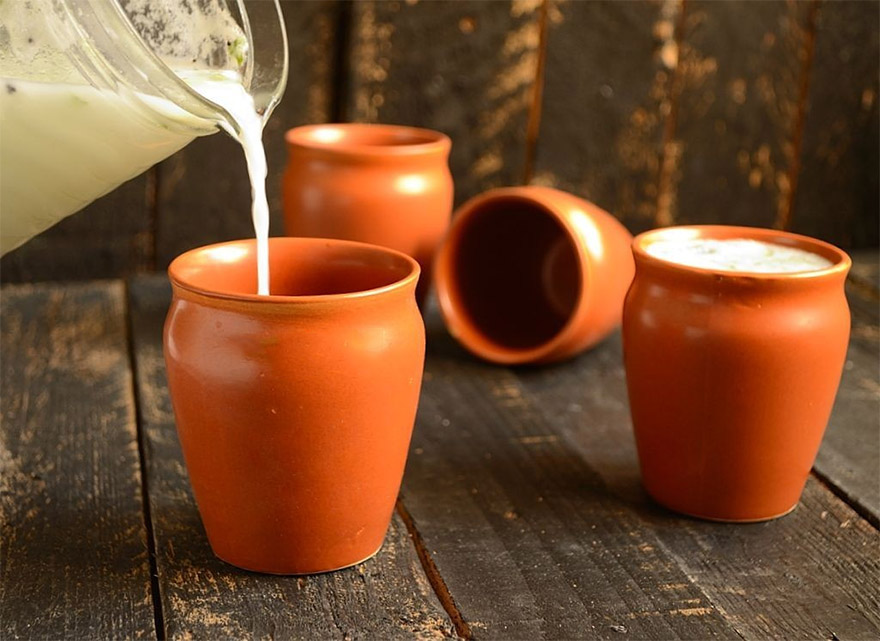Fasting is a process that proves to be an effective method to ignite the digestive Agni or the body’s inner fire and burn off the accumulated impurities and amas or toxic wastes in the body. Amas are the root cause of almost all diseases. Fasting rejuvenates the mind, body and spirit entirely. It nurtures general wellness by discarding toxins and gas, and augmenting mental lucidity. It also makes the physical state light and easy.
In Ayurveda fasting depends on the body constitution based on dosha and its dependent cleansing needs. In fact it does not support the route of completely abstaining from food or water for long time periods as it leads to disharmony. It also drains the dhatus or body tissues. This is why Ayurveda advocates more of regular, short span detoxifying fasts than infrequent long drawn hunger strikes. This type of fasting is non-stressful and gentle. It is very convenient and can be easily integrated into one’s schedule. Such fasting boosts the body energy level and cleanses the body beautifully.
[wp_ad_camp_1]
Let’s look at this from a scientific standpoint. Food literally is like input or information for the body. Like any other form of matter it consists of atomic particles in a specific arrangement. These get broken down by the various elements of Agni comprising of enzymes, hydrochloric acid, etc., and reform new cells. Simply put, during the process of fasting the quantity of the input in the digestive system tends to disintegrate and then reassembles. They do this by absorbing the nutrients. Major organs such as the stomach, intestines, pancreas, and gall bladder get ample rest and this swiftly leads to their revival. The process strengthens digestion and bolsters the immunity of a person. According to Ayurveda, fasts help in maintaining balance within the body. Otherwise while curing one condition, one can set off another.
There are four main classifications of fasting according to the ancient practices of Ayurveda. These are decided based on factors such as one’s body structure and composition, digestive power, age and toxin level. One must also check the overall health status like if one is suffering from any ailments or health conditions. Due to this reason professional recommendation is important.
The type and style of fasting is different for different individuals. A fast pattern based on a proper Ayurveda diet is always customized to suit the person. There are four distinct classifications based on the kind of intake that goes into the system. These include firstly consuming fruits, veggies and juices only. The second type involves consuming light foods like khichdi, mashed rice, and kanji. The third is completely staying away from all solid foods and drinking fluids like water and herbal teas. Water can be consumed during the first three. The fourth and most severe is completely abstaining from food and water for a short spell.
In fact during normal meals too, Ayurveda doesn’t encourage excess eating. In fact one should consume only the amount that can be cupped by one’s hands. If we eat too much the excess amount is partially digested and stays lodged permanently. Heavy meals put a strain on the digestive tract and get stored as unwanted flab in the body.
Detoxification fasts in Ayurveda are streamlined with body types. The three doshas namely Vatta, Pitta and Kapha have their very own specifications. During fasts Vatta types can add warming spices, starchy vegetables, a little oil and fruits like avocado and bananas to their meal plan. Vata types are generally lean with a dry, cold dosha and their bodies don’t gel with total fasting. Due to the excess of air and ether lack of food can make them very weak.
Those with Pitta dosha can try lime juice with a dash of coconut water and sprinkled with cooling cilantro or even coriander leaves. Kaphas can also integrate warming spices into the diet but must avoid starch and oil. These two types have larger builds and more energy with weigh gain tendencies. Both can benefit from aggressive abstinence. Generally these fasts don’t last more than a couple of days.
Ayurveda supports regularly going in for partial fasting. This can be done for at least a day or so once every week. This is known as a mono diet. One can drink plenty of salt-free fluids like water, vegetable juice, raw milk boiled with ginger and yogurt mixed with cumin powder and water. A single light meal at noon is ideal. This can consist of milk, rice, yogurt, veggies, fruits, yellow lentil garnished with pepper, ginger, cumin, etc. One can also extend a mono diet for 2-5 days if one can manage the same. It will result in complete detoxification. One should not be tempted to snack. The value of hunger translates to a positive effect for the body at the end of the day. During the time of the fast one must maintain a certain intake of water. Hence one should frequently drink water and expel the same from the body. This is also a technique for discharging the toxins.
Change in seasons is also great for fasting according to the principles of Ayurveda. Fasting can be done any time but usually the cusp between winter and spring is a great time for any kind of cleansing therapy. It helps one to release the toxins that build up in the body over the harsh winter months. Fasting is not just cutting food but also a time for breathing exercises and positive thinking.
This is how a detoxifying fast can completely purify and energize the body and mind in order to promote fitness, wellness and contentment.











Superb information from India Divine as usual. I look forward to these updates as upgrades for my cognitive faculties and improved awareness of the route to pure consciousness. I share these information bytes as as appropriate with friends and my students.
I hope people who appreciate this knowledge,also appreciate the source of this knowledge ie Ayurveda (part of the mighty Vedas) and not give credit to latest research,or Chinese medicine or any other source except the Indian source which seems to be the case in most cases.Please also remember the Chinese used to come to India for knowledge,amongst other things,and the Arabs also sourced much from India.
When we are successful we publicly thank our parents first ,especially our mother who is our first Guru,and foremost so accordingly please pay your respects to Mother India-only good can come out of it.Thank you.